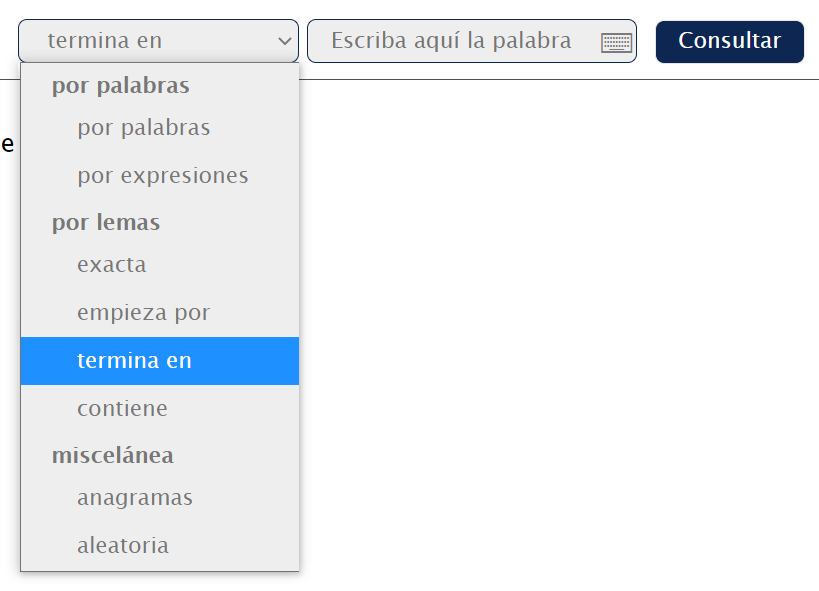Me interesa saber si existe un diccionario de español en línea, en donde se puedan buscar las palabras por las últimas y no por las primeras letras.
Por ejemplo:
Si uno desea buscar caramba, uno teclea "ab..." y debe aparecer la lista de palabras que comienzan con ab: ábaco, abanico, etc. como sugerencias, de tal manera que uno obtenga todas las palabras (estándar) con un número deseado de letras finales comunes.
¿Alguna referencia?
Is there an online reverse Spanish dictionary: i.e. the input are the last letters.

